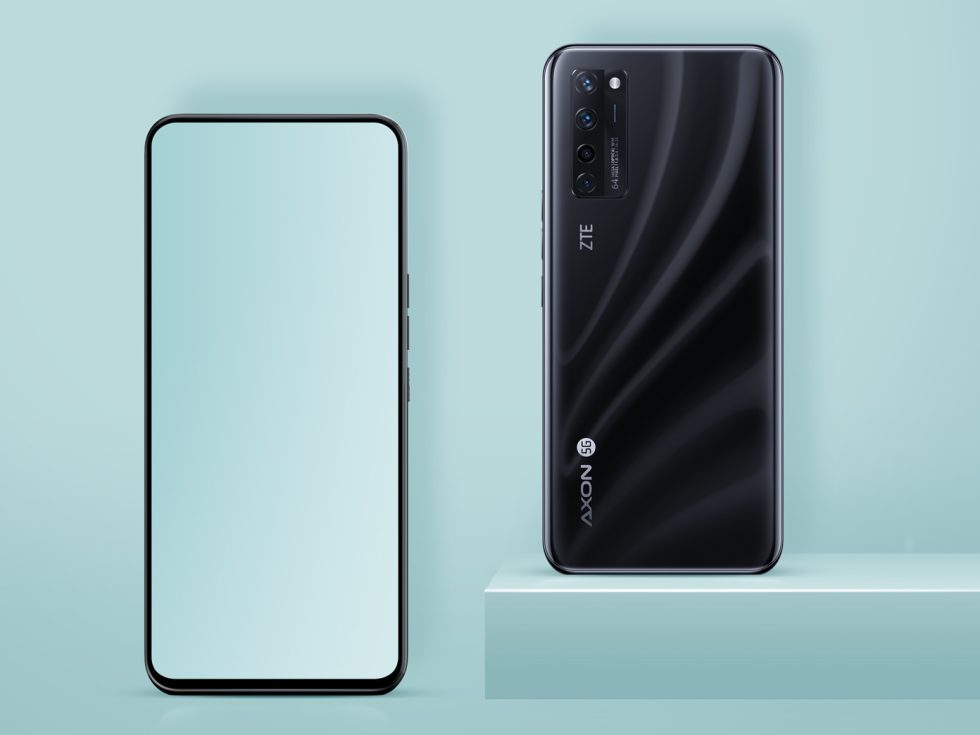ZTE announces the world’s first phone with a behind-the-screen camera
-

ZTE's official render, which shows a pristine display. There's a camera behind there somewhere. [credit: ZTE ]
ZTE has officially announced the world's first commercial phone with a behind-the-screen camera: the ZTE Axon 20 5G. Shrinking phone bezels have made locating the front camera a major design point of phones for the past few years. We've seen big camera notches, small camera notches, round camera cutouts, and pop-up cameras. Rather than any of those compromises, the under-display camera lets you just put the camera under the display, and by peering through the pixels, you can still take a picture. It's the holy grail of front-camera design.
As we've seen in explainers from Xiaomi, these under-display cameras work by thinning out the pixels above the display, either by reducing the number of pixels or by making the pixels smaller, which allows more light to reach the camera. In the area above the camera, manufacturers will have to strike a balance between a denser display with lower-quality camera results or better camera output in exchange for an uglier above-the-camera display.
AmazTech to the rescue
ZTE's official renders of the device claim the camera is completely invisible, which can't be right. It's standard practice to not make any attempt at a realistic-looking pixel display in these renders, but in this case, that's a big deal, since the display should look slightly darker above the camera. With COVID cutting down everyone's ability to travel, there isn't much in the way of live footage of the phone, either. ZTE posted an official live video to Weibo that really goes out of its way to never linger on a close-up shot of the camera, which is highly suspicious given the camera is the phone's only headline feature. The best footage we can find right now is a YouTube unboxing from AmazTech, which at least takes the time to scrutinize the sensor location. AmazTech doesn't have the sharpest video quality on Earth, but it doesn't seem like ZTE has a lot to hide: the camera is still hard to spot. I would still like a better look at the screen, particularly with lower brightness levels, but so far it looks amazing.
Read 2 remaining paragraphs | Comments
from Tech – Ars Technica https://ift.tt/31RjNsu
Comments
Post a Comment